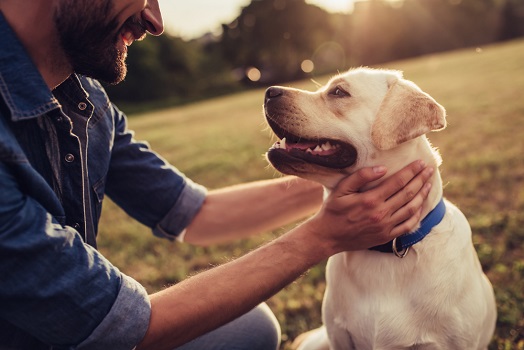Get wiser about: Dog teeth cleaning and dental care costs

Did you know that tooth decay is the number one reason that under-fives end up in hospital? Well, it's not just us humans that need to take care of our teeth. Dogs do too.
A barking mad, 80% of our canine companions suffer from some form of dental disease.
So how do you care for your four-legged friends teeth and gums? Never fear, our help is here. Read on for everything you need to know...
The dangers of dental disease
How can you tell if your dog has dental disease?
Causes of tooth and gum disease
How to prevent your dog getting dental disease
Can you remove tartar yourself?
How do vets clean dog's teeth?
How much will vets charge to clean your dog's teeth?
Vet tooth care schemes
Is dental care covered by pet insurance?
How much does it cost to remove a dog's tooth?
Can dogs get false teeth?
The best (and worst) foods for your dog's teeth
And finally...
The dangers of dental disease
Dental disease varies from the very minor, to the very major. A plaque build up or sore gums are common complaints and they're quick and easy to treat. However, if they're left, they can turn into something really nasty.
Did you know that if plaque is allowed to build up, it will turn into tartar. Not only is this difficult to remove, but it can lead to inflamed gums (Gingivitis). If plaque and Gingivitis aren't treated, bacteria will build up and could get into your dog's gums. This is something that you really don't want to happen.
Once bacteria enters the root of the teeth, it will enter your dog's blood stream and spread to his internal organs. In the very worst cases, it can even cause death.
Not a very positive note to start this guide on, but as you can see, it's essential that you don't neglect your dog's teeth and gums.
How can you tell your dog has gum disease?
Look out for these six signs:
- Smelly breath
- Red, inflamed or sore gums
- A build up of plaque (look out for a yellowing of his teeth)
- A build up of tartar (look out for a hard, green-brown substance on his teeth)
- Loose or missing teeth
- Struggling to eat/drink
What causes tooth or gum disease?
A surprising number of dog owners are unaware that:
a) they need to look after their dog's teeth
b) how to look after their dog's teeth
Tooth and gum disease are caused by a combination of two main factors. A poor diet and a lack of teeth cleaning or brushing. Pay attention to these and there should be no reason for your four-legged friend not to have amazing mighty whites.
How to prevent your dog from getting dental disease
We've pretty much just given you that answer, but here's a little more detail.
The first thing thing to concentrate on, is your dog's diet.
Don't worry, there's no need to prepare a gourmet three-course meal for him every day, but he does need good quality food.
Dry dog food is best as it doesn't stick to teeth and gums like canned food can. This helps to prevent the build up of plaque.
Now... we know we just said that you don't need to serve three-course meals for your pampered pooch, but you can give him a taste of what you eat.
Cooked green vegetables are a great source of vitamins and minerals and raw carrot is a brilliant tooth cleaner. Plain probiotic yogurt is also good, as is skinless cooked chicken and turkey. Maybe you should set another place at the table for Sunday lunch after all!
There are lots of special dog chews, biscuits and toys specifically designed to provide dental care too. Speak to your vet for expert advice specific to your dog's age, breed and dietary needs.
Secondly, it's time to get brushing!
It's never too early to start brushing your dog's teeth. In fact the sooner you can start the better. You should aim to brush your dog's teeth at least once a day. Ideally twice.
Ask your vet to recommend a toothbrush and toothpaste that's appropriate for his mouth and teeth. Don't use items designed for humans as they may do more harm than good.
Never brushed your dog's teeth before? No problem. Take it slowly and start by stroking your dog's cheeks for around 30 seconds on each side, at the same time of day, for a couple of days until he's used to it. Reward him with praise, a dog chew, biscuit or raw carrot afterwards. Once he's used to this, put a little toothpaste on your finger and rub his teeth and gums. Again, work up to 30 seconds on each side and reward him afterwards. When he's used to this, swap your finger for a toothbrush. By this point, the two of you should be fully fledged tooth brushers.
Aim to brush your dog's teeth at the same time, in the same place every day, so that it becomes part of his routine.
Can you remove tartar yourself?
Tartar is very difficult to get rid of. You can buy tartar scrapers and have a go at doing it yourself, but by far the best thing to do is get it removed by a professional. They will do a much better job. It might cost you a bit of money but if there's one thing it's not worth scrimping on, its the health and dental care of your trusty companion.
How much will vets charge to clean your dog's teeth?
Take a guess! We'll reveal the answer at the end of this guide.
A. Nothing. The vet does it free of charge
B. £89
C. £142
D. £233
E. £309
How do vets clean dog's teeth?
Your vet's approach to teeth cleaning is somewhat more technical than yours will be.
- Step 1. Vet assesses your dog's mouth to get a general idea of his dental health
- Step 2. Vet takes blood to check your dog can be anaesthetised
- Step 3. Vet puts your dog to sleep
- Step 4. Vet takes an X-ray to check for signs of gum problems
- Step 5. Gums are thoroughly cleaned
- Step 6. Teeth get a professional scale and polish. The scaling scrapes plaque away, the polish helps prevent further build up of plaque or tartar.
Vet tooth care schemes
Some vets offer tooth care schemes for around £100 a year. If your dog has bad teeth or gums, joining a tooth care scheme could well save you money. However, if your dog doesn't have any oral hygiene issues, it's probably not necessary. Just keep brushing those teeth and feeding him good quality food.
Vet tooth care schemes usually cover:
- Dental assessments
- Essential dental care - including tooth extraction
- Discounts on dental-related work - such as blood tests
Is dental care covered by your pet insurance?
Most pet insurance provides cover against dental accidents. Depending on the level of cover you choose, it may also cover dental illness. Treatments which your insurer deems to be preventable won't be covered - and this includes teeth and gum cleaning.
How much does it cost to remove a dog's teeth?
Approximately £170 - £300 for up to three teeth.
Can dogs get false teeth?
They can! In fact the first time a dog was given false teeth, was way back in 1938! Despite doggy dentures being around for years, they're still not very common. Why? Because inserting them is a complicated and costly procedure, which only specialist vets can do. Plus it's not uncommon for dogs to take an instant dislike to the procedure and their new teeth, so in many cases well-meaning work is wasted.
The best (and worst) foods for your dog's teeth and gums
Earlier, we touched on the best foods for your dog's teeth. These included carrots, green vegetables, dry dog food and chicken and turkey. Here's some more for you to add to their menu:
- Apples
- Raw bones
- Dried beef ears or snouts
- Butternut squash
- Pumpkin
- Cucumber
- Celery
- Frozen berries such as cranberries, raspberries and blueberries
... And now for the worst.
No matter how much your prized pooch flutters his puppy dog eyes, don't give him any of these. Not only are they bad for his teeth and gums, but they're no good for his guts either.
- Chocolate
- Garlic and onion
- Avocado
- Cooked bones
- Cheese
- Sweets
- Raw egg
And finally ...
We know you've been dying to know what the average vet charges to clean a dog's teeth and gums. We can now reveal the answer was D. Or £233 (a professional scale and polish of your dog's teeth is recommended once a year).
We hope you're now feeling nicely clued up on your knowledge of dog teeth cleaning and dental care costs. May your four-legged friend's big healthy smile last a lifetime.
0 Comments
Please sign in to post a comment.




